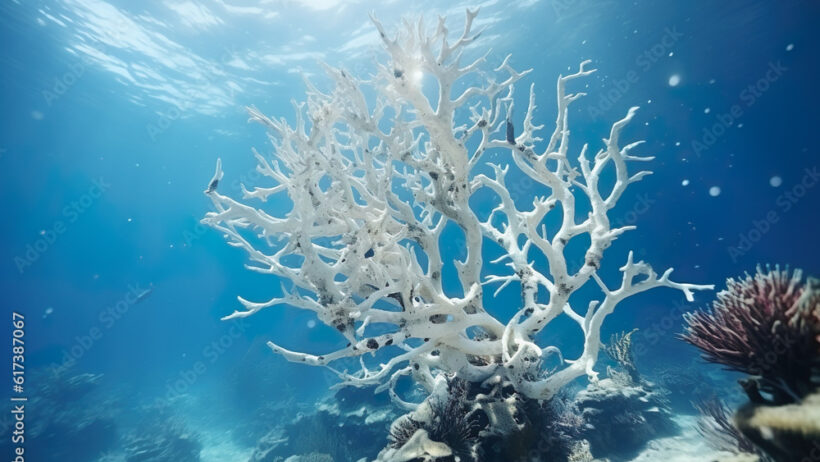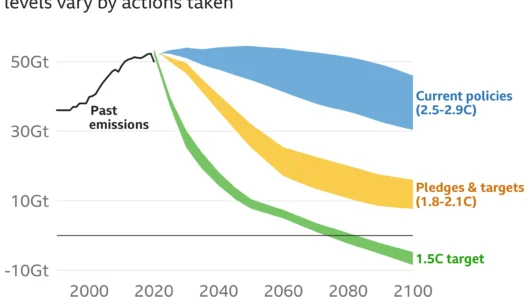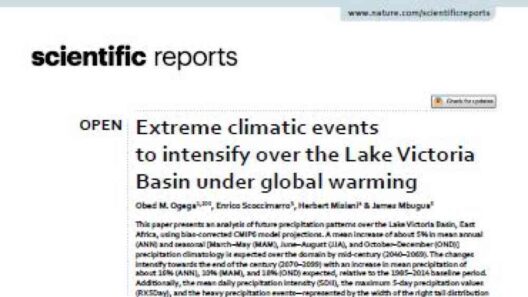Coral reefs, often referred to as the “rainforests of the sea,” are among the most diverse ecosystems on Earth. They are vital for marine life, providing habitat, food, and protection. However, these vibrant underwater worlds are under unprecedented threat due to global warming. The consequences of rising sea temperatures and changing oceanic conditions are reverberating throughout the marine ecosystem, leading to a crisis that demands urgent attention.
Global warming is primarily driven by greenhouse gas emissions from human activities. As the planet warms, oceans absorb much of this heat, causing water temperatures to rise. This seemingly innocuous increase has dire repercussions for coral reefs. Coral organisms have a symbiotic relationship with zooxanthellae, microscopic algae that live within their tissues. These algae provide corals with nutrients through photosynthesis while receiving protection and access to sunlight in return. However, when water temperatures exceed a certain threshold, corals expel these algae, leading to coral bleaching.
Coral bleaching is an alarming phenomenon where the vibrant colors of coral reefs fade, leaving them looking ghostly white. Beyond aesthetic concerns, this signifies that corals are in distress. The loss of zooxanthellae deprives corals of essential nutrients, making it challenging for them to thrive or reproduce. If stressful conditions persist, bleached corals can die, resulting in the degradation of the entire reef ecosystem. Over the past few decades, extensive coral bleaching events have been recorded, correlating with spikes in global temperatures.
The repercussions of coral reef degradation extend far beyond the immediate environment. These reefs serve as crucial barriers protecting coastlines from storm surges and erosion. They mitigate the impact of powerful ocean waves, safeguarding coastal communities. As corals die off, the risk of severe flooding and erosion increases, placing human settlements in jeopardy. Consequently, the economic implications are staggering. Many industries, including tourism and fisheries, rely on thriving coral reef ecosystems. The loss of biodiversity in these habitats can jeopardize food sources and livelihoods for millions of people worldwide.
In addition to temperature rise, ocean acidification poses another significant threat to coral reefs. Increased carbon dioxide emissions are not just heating the planet; they are also altering the ocean’s chemistry. When CO2 is absorbed by the sea, it reacts with water to form carbonic acid, lowering the pH level of seawater. This phenomenon weakens the calcium carbonate structures that corals rely upon for growth and stability. As the ocean becomes more acidic, juvenile corals struggle to form and maintain their skeletons, which can hinder the entire reef-building process over time.
Moreover, anthropogenic activities exacerbate the challenges faced by coral reefs. Coastal development, pollution, and overfishing contribute to the degradation of these ecosystems. Runoff from agricultural lands introduces fertilizers and pesticides into the ocean, promoting algal blooms that further compete with corals for resources. These additional stressors compound the impacts of climate change, creating a vicious cycle that jeopardizes the delicate balance necessary for coral health.
However, there is a glimmer of hope. Scientists and researchers are actively exploring innovative solutions to mitigate the effects of climate change on coral reefs. Restoration efforts are underway in various parts of the world, focusing on restoring damaged reefs through coral gardening, where fragments of healthy coral are cultivated and transplanted onto degraded reefs. Additionally, advances in selective breeding and genetic engineering may yield more resilient coral species better equipped to withstand changing conditions, such as increased temperatures and acidification.
Public awareness and community engagement are pivotal in the fight to protect coral reefs. Educating local populations, tourists, and stakeholders about the ecological importance of coral reefs can foster a sense of stewardship. Sustainable tourism practices, coastal management policies, and fishing regulations can help alleviate pressure on fragile ecosystems. Encouraging reef-friendly practices, like responsible snorkeling and diving, protects these delicate environments while allowing individuals to appreciate their beauty.
At the policymaking level, global cooperation is essential. Climate change is a transnational issue necessitating a unified response. International agreements, such as the Paris Accord, aim to bring countries together to address greenhouse gas emissions. Strengthening these initiatives and encouraging nations to commit to stringent climate action would significantly alleviate the pressures on coral ecosystems.
In conclusion, the crisis facing coral reefs is not just an environmental concern; it is a multifaceted issue that interweaves ecological, economic, and social threads. The countdown to action is urgent, as the window to salvaging coral ecosystems is rapidly closing. Protecting these ocean jewels is paramount, not only for the myriad of species that depend on them but also for the health and sustainability of our planet. As stewards of this Earth, individuals and communities must rise to the occasion, advocating for robust climate action and participating in conservation efforts. The survival of coral reefs depends on our collective effort.







